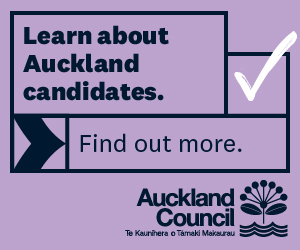
Albert-Eden Local Board

Housing and planning
Local councils are responsible for land use planning under the Resource Management Act, which affects where and how new houses are constructed, as well as the design of cities and towns. In some areas, councils also provide housing to those who need it most.

Housing and planning
Local councils are responsible for land use planning under the Resource Management Act, which affects where and how new houses are constructed, as well as the design of cities and towns. In some areas, councils also provide housing to those who need it most.
Prioritise funding for housing support services that address the needs of the homeless community and families that are vulnerably housed.
Support the intensification of housing that are in close proximity to jobs and local facilities and services.
Work with community agencies that provide housing support services for asylum seekers and recent migrants.
Support intensified urban development to reduce urban sprawl and increase housing supply (human right) incorporating green spaces and trees.
Identify renter protection advocacy agency to support local renters to partner with through grants programme.
Advocate for social housing, co-housing and tiny houses to be allowed and help meet community needs now and for future generations.
Make it easier to build and refurbish houses by improving the efficiency of Auckland Council's consenting teams.
Focusing growth to where adequate infrastructure can be provided.
Use development contributions to purchase strategically located properties to link divided streets and improve walkability and cyclability.
Better protect special character and heritage areas, while also allowing for intensification done well.
More effectively consult with local communities to improve quality, and increase awareness of building developments in their neighbourhoods.
Provide transparency around infrastructure planning so we can better plan for social cohesion for community building initiatives in tandem.
Ensure the appropriate rigour is in place for quality control on developments so we are receiving high quality investment in our community.
Drive for better planning and clarity on the location of light rail stations along the proposed route through Ōwairaka.
Provide transparency around infrastructure and social cohesion for communities expecting housing intensification in their neighbourhoods.
Encourage innovative and practical urban design solutions that put common sense over ideology.
Push for answers concerning the location of light rail stations along the proposed route through Ōwairaka.
Advocate for more mixed-use zoning so that residents have better access to local shops, services and employment opportunities.
Work with Governing Body and Kāinga Ora on implementing projects from the 30-year spatial plan for high-growth areas in Albert-Eden.
Plan future open space and service provision to meet the needs of denser urban living.
Push for great parks and facilities for communities as the city and population grows.
Support housing intensification that is well designed, near transport hubs, arterial roads and town centres.
Push for the reinstatement of general tree protection across the city.
Prioritise funding for housing support services that address the needs of the homeless community and families that are vulnerably housed.
Support the intensification of housing that are in close proximity to jobs and local facilities and services.
Work with community agencies that provide housing support services for asylum seekers and recent migrants.
Support intensified urban development to reduce urban sprawl and increase housing supply (human right) incorporating green spaces and trees.
Identify renter protection advocacy agency to support local renters to partner with through grants programme.
Advocate for social housing, co-housing and tiny houses to be allowed and help meet community needs now and for future generations.
Make it easier to build and refurbish houses by improving the efficiency of Auckland Council's consenting teams.
Focusing growth to where adequate infrastructure can be provided.
Use development contributions to purchase strategically located properties to link divided streets and improve walkability and cyclability.
Better protect special character and heritage areas, while also allowing for intensification done well.
More effectively consult with local communities to improve quality, and increase awareness of building developments in their neighbourhoods.
Provide transparency around infrastructure planning so we can better plan for social cohesion for community building initiatives in tandem.
Ensure the appropriate rigour is in place for quality control on developments so we are receiving high quality investment in our community.
Drive for better planning and clarity on the location of light rail stations along the proposed route through Ōwairaka.
Provide transparency around infrastructure and social cohesion for communities expecting housing intensification in their neighbourhoods.
Encourage innovative and practical urban design solutions that put common sense over ideology.
Push for answers concerning the location of light rail stations along the proposed route through Ōwairaka.
Advocate for more mixed-use zoning so that residents have better access to local shops, services and employment opportunities.
Work with Governing Body and Kāinga Ora on implementing projects from the 30-year spatial plan for high-growth areas in Albert-Eden.
Plan future open space and service provision to meet the needs of denser urban living.
Push for great parks and facilities for communities as the city and population grows.
Support housing intensification that is well designed, near transport hubs, arterial roads and town centres.
Push for the reinstatement of general tree protection across the city.
Mayor
Compare the mayoral candidates in your area
Local council
Compare the candidates for your city or district council
Regional council
Compare the candidates for your regional council
Local board
Compare the candidates for your local or community board








